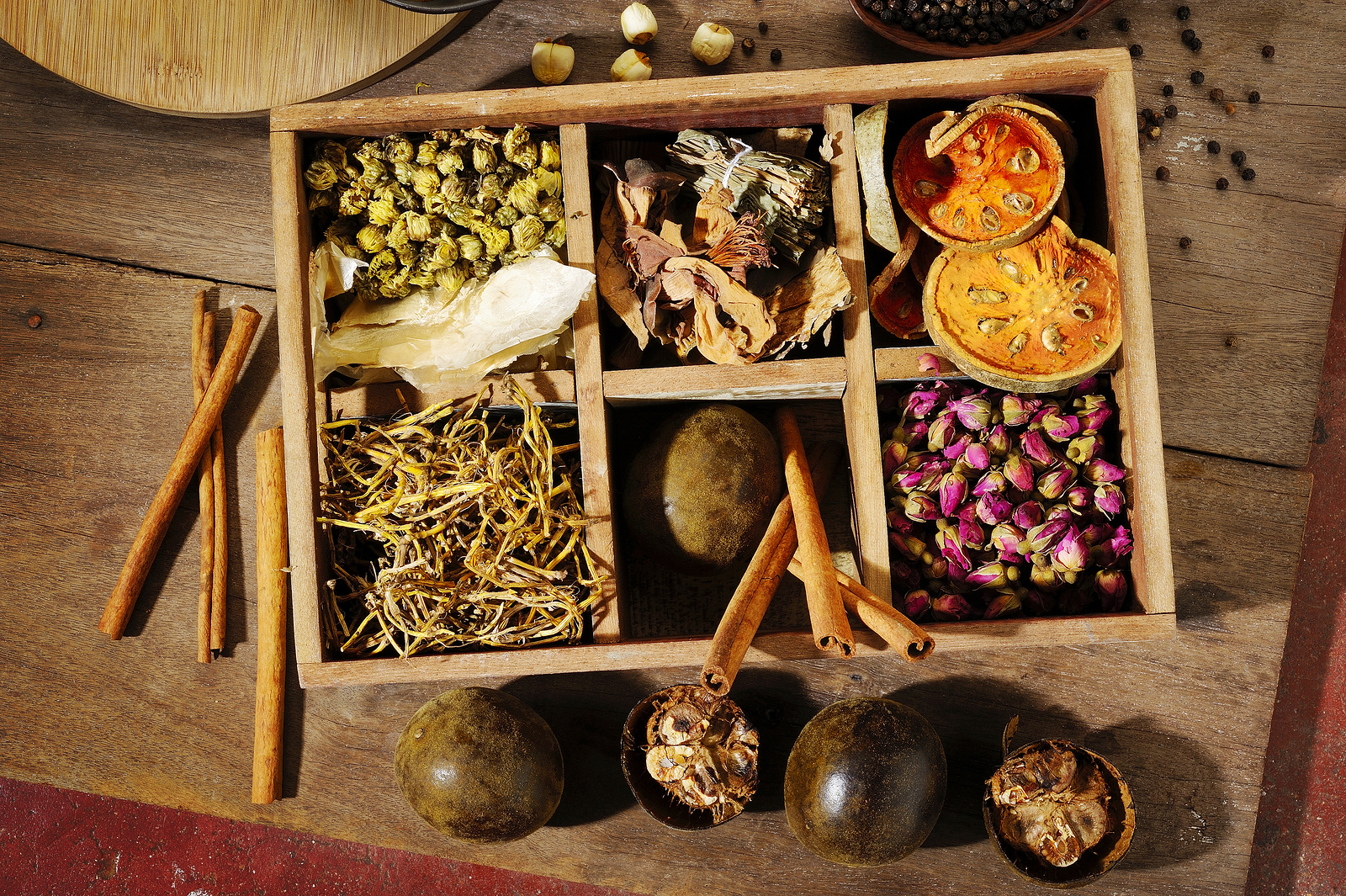I get asked a lot of questions about traditional Chinese medicine—and that’s great! I want individuals to be fully informed about the practice before establishing if herbal medicine is the correct path for them.
The basic principles of traditional Chinese medicine use a different approach than that of Western medicine. Most Western medicine is made from synthetic, chemical substances and designed to alleviate discomfort by controlling or suppressing the symptoms. With traditional Chinese medicine, only natural ingredients (mostly dried plants) prepared by a trained herbalist are used. Chinese medicine aims at alleviating discomfort by adjusting an internal imbalance in the body.
The way the organs in the body work is analogous to the parts in a car. The parts must work in harmony for the engine to properly perform and the car to function. The same is true for the human body. If one organ is weakened due to pain, discomfort, or illness, it puts a strain on the other organs as well and can lead to severe illnesses. With traditional Chinese medicine, we strive for balance and harmony within the human body by finding the root cause of why a patient doesn’t feel well.
When a patient comes to me with symptoms, I immediately begin to listen and note the root cause of the issue. I start by asking four questions:
- How is the body metabolizing?
- What is the patient doing that is affecting the liver—are they abusing alcohol or painkillers?
- How is the patient eating?
- How are the patient’s kidneys—are they staying hydrated or consuming too many sugary drinks?
Listening to your body will often signal that something is wrong. The healthier a patient’s body is overall, the better the herbs I provide will work. Furthermore, herbal medicine works not only in response to particular ailments, but can also work toward the prevention of illnesses. It is easier to avoid a problem in the body than it is to treat the ailment retroactively. This medicine also acknowledges that the bodies of men and women are different, and therefore the prescribed herbal mix will differ when necessary to treat each patient.
The environment you live and work in can also affect your overall health. Humidity, wind, temperatures, amount of sunlight, and even local foods all have a large impact on our lifestyles and bodies. The climate and transition of seasons play a significant role in Chinese medicine and culture. Oftentimes, herbal medicine will rotate with the changing seasons. Two patients may have the same symptoms and ailments, but because they live in different parts of the world the herbal treatment will be different for each.
I once had a patient who could not understand why she was constantly falling ill. After listening to her speak about her personal and work life, I soon became aware that her work environment was the culprit of her ailment. Her office space was so hot, the ceiling fans were always on to cool the space, even a couple of degrees. One fan was perfectly aimed right at my patient that she had to wear a scarf to work to cover her neck from the cold air. Temperature fluctuations can have strong effects on the body!
Your diet plays a vital role in your overall health. In the philosophy of traditional Chinese medicine, everything needs to be eaten in moderation according to the amounts needed to sustain our health and energy. For instance, unhealthy food options such as candy, fried food, soda, or oily foods are considered to be negative in Chinese medicine due to the extra energy and effort our body exerts to break down the sustenance. If eaten repeatedly and not in moderation, the negative side effects will continue to increase.
Oftentimes, the direct cause of a physical ailment is our lifestyle and the food we eat. Heavy foods require more energy to digest, leaving less energy for your other organs to optimally perform. In the US, unhealthy foods surround us. Obesity is a severe problem, and we must consistently make wise choices in our diet to have a positive lifestyle.
When patients first come to me, I often place them on a bland diet so their body is not stressed and can fully absorb the herbs I prescribed to heal their ailment. One of the best foods for supplying nutrients while being easy on the body is a Chinese favorite called congee. It’s simply rice and water. Adhering to a bland diet will help your body make the most of its herbs to treat your symptoms. It takes roughly 90 days for the body to no longer crave unhealthy, fried, or sugary foods, but once you make the switch you will be on the path to positive overall health. We must be aware of what is going on inside of our bodies and feed them what they need and deny them (most of the time) of foods that cause stress on the body.
By taking a holistic perspective on your health, you can transform your lifestyle into one of healthiness and happiness. For more information on traditional Chinese medicine and to see if herbal treatments may be a good fit for you, please visit Julianachinisogai.com.
